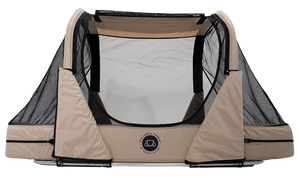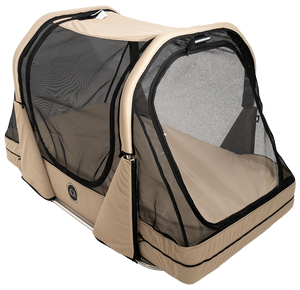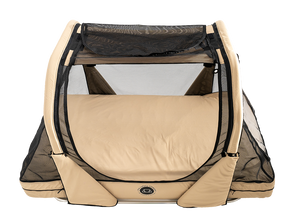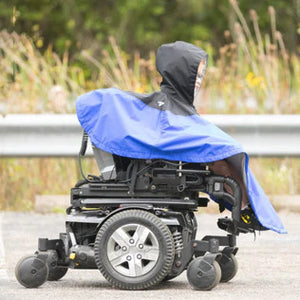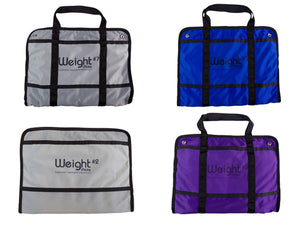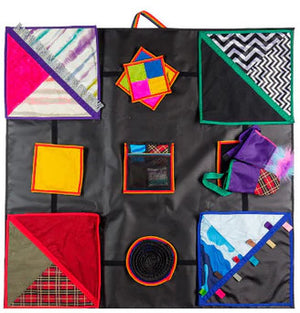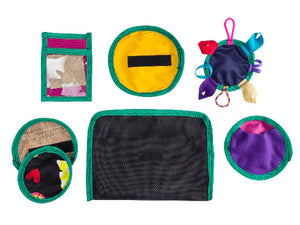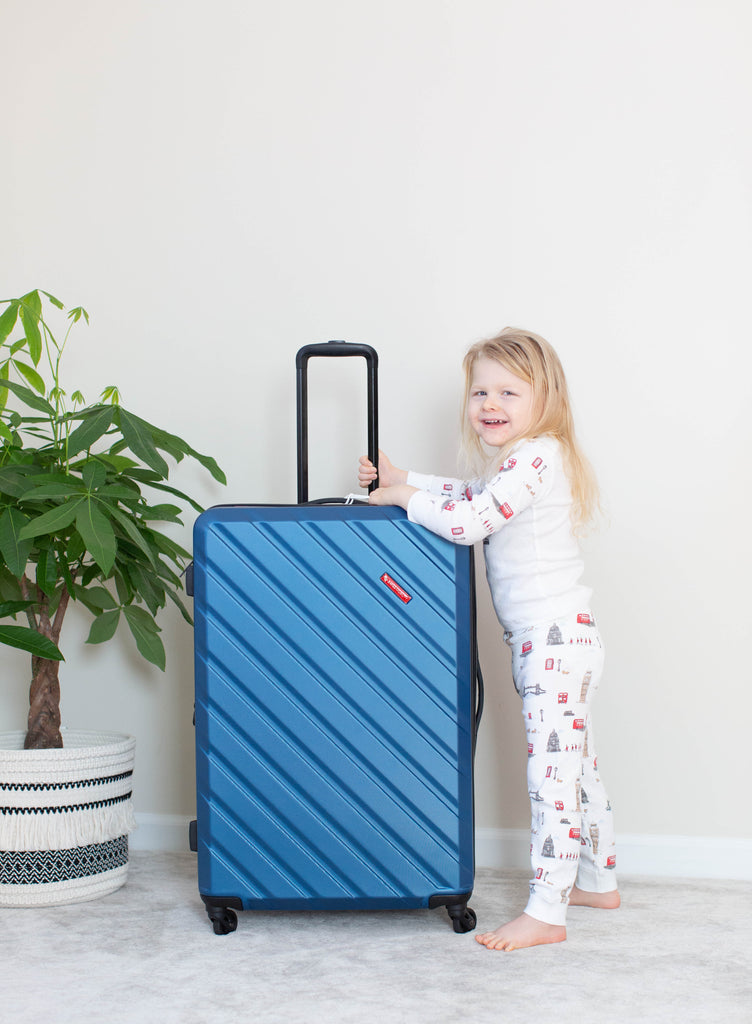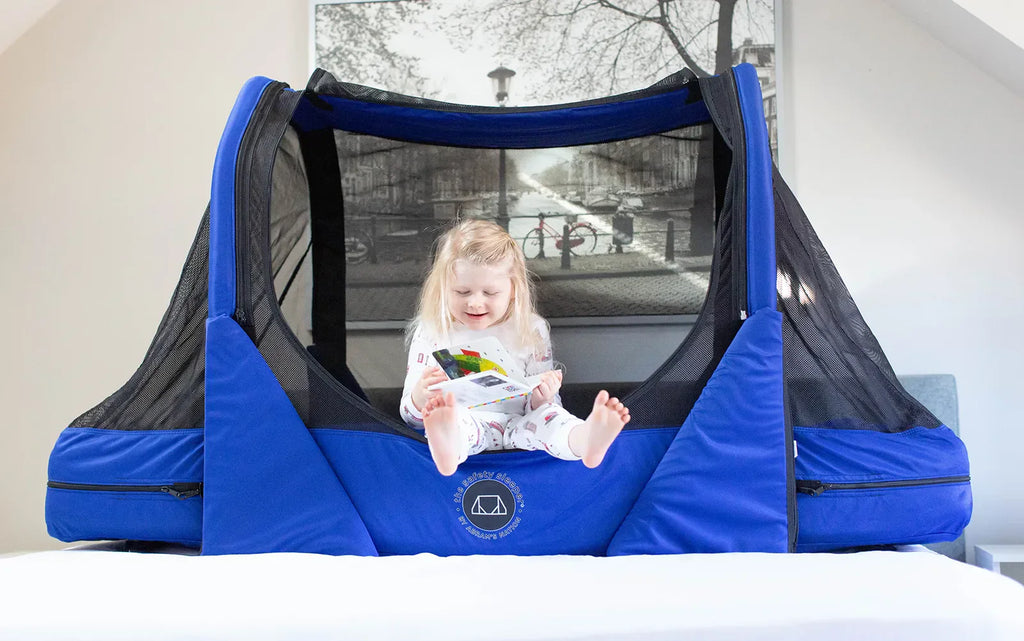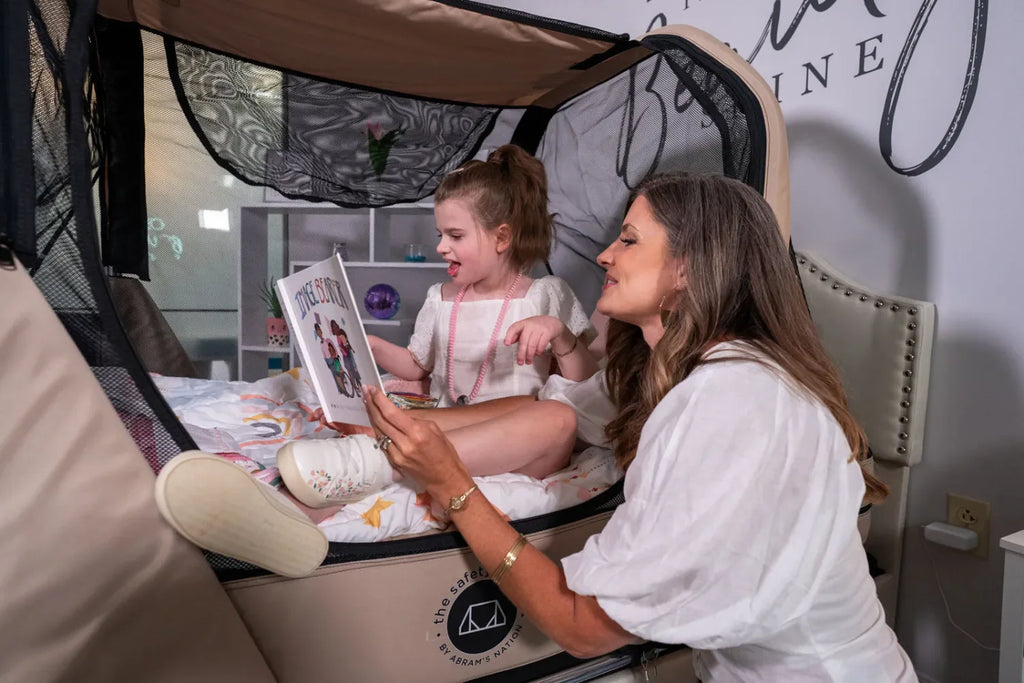Traveling with children is never easy. And when you have a child with special needs, traveling becomes even trickier.
Suddenly, potty breaks are more important. Stopping for snacks is critical. And being mindful of large crowds, loud noises, and unfamiliar surroundings is paramount.
Understanding your child's specific needs is critical before embarking on vacation or taking a road trip.
We’re here to help.
With the right preparation, traveling can be relaxing for you, your spouse, and your kiddo, no matter what obstacles you run into!
Tips for Traveling With Your Child With Special Needs
On top of knowing the items to pack and using your spidey senses to prepare for those unexpected moments, you should also know your child.
This should go without saying, but if your child needs structure and routine, traveling can throw a wrench into their day. Play out the scenarios of how their day can become disrupted, and then plan accordingly.
Imagine yourself becoming a Navy SEAL team and planning for a variety of alternate scenarios! Proper preparation will help you overcome whatever challenges you and your kiddo run into.
Here are some of our favorite recommendations for making your preparations a little easier:
1. Be Ready to Communicate Your Needs…
They say an ounce of prevention is worth a pound of cure, and that applies when it comes to traveling near other people.
Consider packing little goody bags with a note explaining your child’s diagnosis to pass along to nearby travelers and support staff.
We’ve even created business cards explaining different diagnoses and potential behaviors that nearby individuals may see. Discussing your child’s needs ahead of time can help you win just a little more patience from travelers and staff members.
A few things to keep in mind when it comes to getting support from nearby staff:
- Airlines - Airline staff can help you with your seats, help your child stay calm, and ensure you have access to any additional resources necessary, like extra drinks and snacks to keep your child happy. Airlines also have a section in your booking to include info on the extra needs your loved one has, like the ability to board early or wheelchair assistance. While boarding, be sure to smile and find the flight attendants for support!
- Hotels - Whether you’d like a room close to the elevator or simply need some extra towels, the hotel staff can help you keep your child and the rest of the family as comfortable as possible.
- Taxis and Ride Shares - Communicating your child’s needs with your driver can prepare them for any outbursts your child may have, and it can also inform them on how to drive—like avoiding the horn if your child reacts poorly to sudden loud noises. Remember: You can often find medical needs-friendly transportation for wheelchair-bound loved ones. These vehicles are specifically adapted and focused on serving this population and make the transitions much less stressful than a generic Uber.
2. …And Be Sure to Say Thank You!
In this day and age of travel, where stress is always high, consider writing little thank you notes or thank you baggie to give to the people supporting your travel, including:
- Hotel staff
- Drivers
- Flight Attendants
- Wait staff
If you have a child with special needs, you know that parenting takes a lot of extra consideration—and it eventually becomes second nature. But the opposite is true of people in the public. This may be the first time they’ve experienced our “normal,” so use thank you notes to show your appreciation.
3. Pack Their Favorite Snacks
Many children with special needs react poorly to new environments. Enjoying their favorite treats can help create a smoother transition!
Your child’s favorite snack can work as a reward for good behavior, a simple distraction from the rigors of travel, or can simply hold them over until you reach your next opportunity for a full meal.
A hard-chewing candy, like Bit-O-Honey, Starburst, or Skittles, can be a good sensory activity to work through stress and anxiety, while persistent chewing and swallowing can assist with pressure relief on airplanes.
Another tip: Wrap the candy so that the child has a few extra moments to be occupied and something to take joy in. Remember that a few moments of distraction can be a mom's best friend!
Whether you’re traveling by air, train, or car, always keep a few snacks close by, especially if your child has dietary restrictions or allergies that make it difficult to order food.
4. Pack Extra Medication
You don’t want to spend a week on the road without your child’s medication!
Always take a few days of extra medication with you. If you’re flying, bad weather could keep you stranded. If you’re in the car, a flat tire or engine troubles could force you to spend an extra day in the hotel. If you’re taking the train, a cancellation could force you to turn around.
As a best practice, keep your child’s medication in a fanny pack, purse, or backpack you plan to keep with you at all times. You don’t want to risk losing medication! you should pack the meds in the original bottles just in case you need to call in a refill in a new city.
And, as we’ll discuss in a moment, take a picture of the prescription bottle in case you need the information!
5. Take Pictures
Pictures and documentation can become your best friend in the event of an emergency. Be sure to snap picture of all important items, including:
- Your passport
- Your driver’s license
- Your most important phone numbers
- Medication bottles (especially the prescription information)
- Your parking spaces
- Your child in their day’s outfit
- Your luggage
All of these images can become vital if someone or something goes missing while you’re traveling.
6. Pack Your Child’s Favorite Comfort Items
If your child snuggles with a teddy bear, blanket, or t-shirt to help them self-soothe, bring it with you.
That comfort object can help prevent meltdowns and give your child some extra security while you’re traveling.
Plus, it can help them wind down at the end of the day so everyone can get some sleep after a long day of travel.
7. Pack Your Child’s Favorite Activities (And Use Their Own Bag)
Charge up your tablet, pack some picture books, and grab some crayons! Whatever your child loves to do to pass the time, bring it along. As exciting as traveling is, getting to your location can feel like a boring, tedious, or even exhausting activity for children.
Giving your child something to do can help distract them from the mundane—and, hopefully, help wear them out so they can fall asleep.
For activity ideas, check out these cool gadgets to ease traveling with your child!
Finally, consider getting your child their own backpack or rolling bag. If the bag contains a change of clothes, some fun games, candy, or little presents, your child may be more invested in traveling and help them learn responsibility. We also like to match our kids outfits to the color of their suitcases to make travel a little more fun!
8. Pack Headphones
So much of travel is simply loud. Airplanes, highways, restaurants—loud noises are everywhere.
High volumes can be difficult for children with special needs to process. To give your child a hand, offer noise-canceling headphones or noise-reducing earmuffs to cut the excess noise to a manageable volume.
9. Pick the Right Method of Transportation
When traveling long distances, there are a variety of pros and cons to all forms of transportation. Some factors to consider:
- Traveling By Car - Pros: You’ll have greater flexibility when it comes to bathroom breaks, stopping for meals, where you choose to sleep, and how you calm your child. Cons: Depending on how far you’re traveling, traveling by car can take the longest.
- Traveling By Bus - Pros: When you don’t need to worry about driving, you can relax a little more. Cons: Without additional staff, you’ll be fully responsible for keeping your child calm and entertained, and you likely won’t have access to additional snacks or drinks. If you have a bathroom on the bus, it may be cramped and difficult to assist your child.
- Traveling By Plane - Pros: For long trips, planes are often the fastest and sometimes even the most affordable option. Many planes also offer snacks, Wi-Fi, and in-flight entertainment. Cons: Planes have cramped conditions for bathroom breaks, and you can’t pull over in the middle of the flight for your child to calm down. In addition, you’ll also have to navigate the crowds at the airport.
- Traveling By Train - Pros: You don’t have to worry about navigation, which can allow you to focus better on your child. Some trains also have Wi-Fi and a kitchen area for snacks. Cons: As with a bus and plane, you won’t be able to stop on the side of the road for your child to take a break from traveling!
When traveling by foot, be picky about how your child gets around. A collapsable stroller, for example, might be lightweight and easy to maneuver, but it could grow uncomfortable for your child over the course of a long day. A sturdy wheelchair might provide extra comfort and security for your child, but it could also be harder to push for a full day.
Think about what you’ll need once you reach your destination and pack accordingly!
10. Be Prepared to Take Breaks
Traveling is stressful, and it can become especially overwhelming for children with special needs.
Pausing occasionally for your child’s sake can remove some of the stress. With that in mind, stop at highway rest stations, enjoy quiet time in an isolated area of the airport, or simply enjoy a moment of peace in the car.
Giving your child a mental and physical break from traveling can help them regulate their mood and give you a more enjoyable travel experience.
11. Be Ready for An Emergency
Here are two of favorite tips for preparing for an emergency in which your child goes missing:
- Use AirTags. Slip an AirTag into your child’s shoe or into their clothing. If they go missing, you can find the AirTag’s location on your phone.
- Write your name and cellphone number on your child’s forearm or wrist. If your child is non-verbal or a flight risk, this will help other adults contact you.
12. Take Your Safety Bed With You
A mobile safety bed like The Safety Sleeper® can keep your child safe and comfortable even when you’re hundreds of miles away from home.
Plus, The Safety Sleeper® has a variety of awesome travel benefits, including:
- A dedicated hardshell suitcase with wheels for easy transport around airports, train stations, parking garages, and everywhere else you travel.
- Easy-to-assemble design that allows The Safety Sleeper® to install directly over another bed or on the hotel room floor.
- A fully enclosed design that can prevent your child from escaping into a hotel hallway.
- An air mattress with a built-in pump so your child can sleep anywhere!
Find Your Safety Bed
You can purchase The Safety Sleeper® for your child today! With its convenient air mattress, hardshell suitcase, and padded interior, The Safety Sleeper® is the ideal safety bed for traveling.
Look through the different models of The Safety Sleeper®, or explore how you can use insurance coverage to purchase yours.

